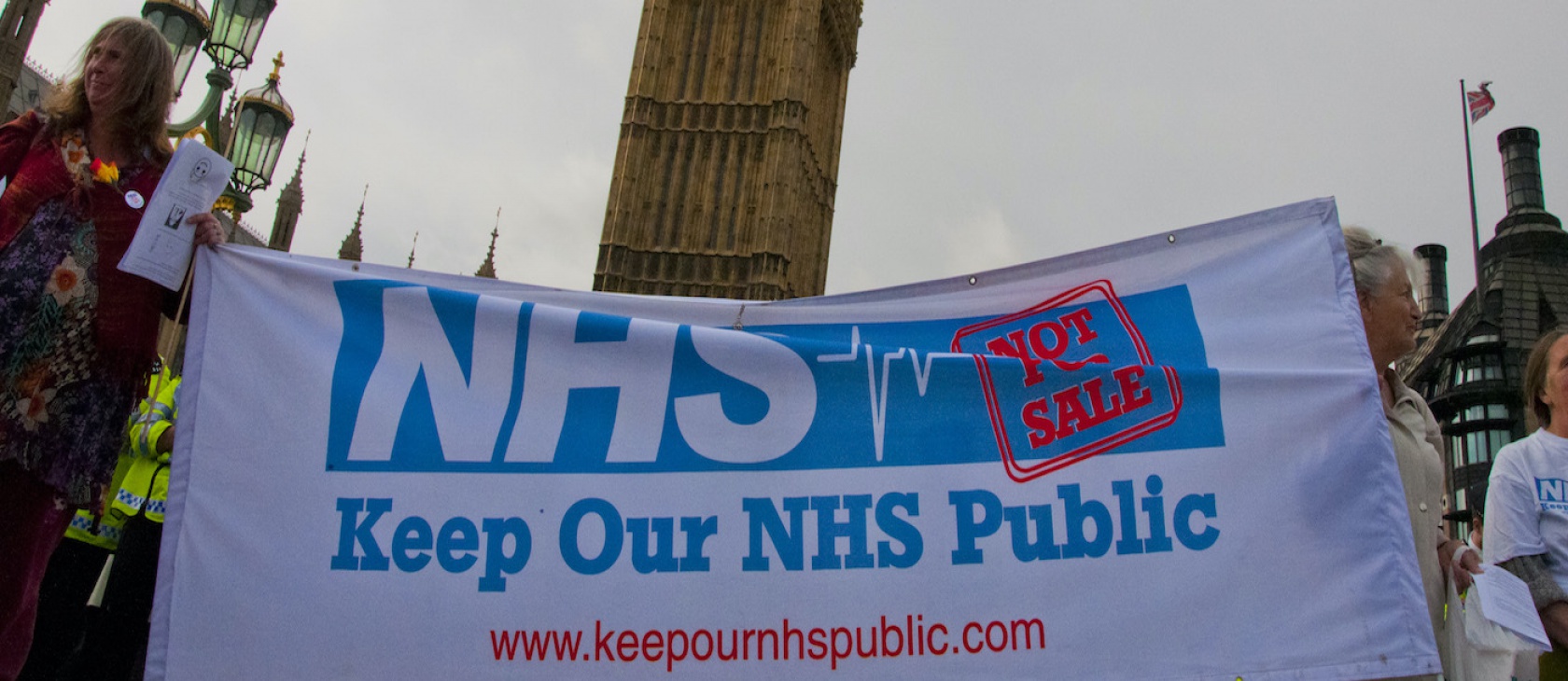A senior official in the UK’s single-payer healthcare system says that patients should stop selfishly putting their own health and well-being first in order to improve the funding and “morale” of the NHS.
Jessica Arnold, who “has held a number of senior roles in the NHS,” argues in the Guardian that the National Health Service would be in fine shape if citizens were willing to suffer in silence until the service can tend to them.
Arnold makes an impassioned plea for Brits to stop using private healthcare, regardless of long wait times, because the private sector drains staff and resources from the NHS.
“I strongly encourage people not to use private healthcare services,” she writes. “I implore anyone who uses private healthcare to be aware that they are effectively privatising the NHS by doing so.”
In a ponderous sentence, she writes: “I ask people to think carefully about the impact of prioritising themselves at a high cost to not only other people who do rely on the NHS, but to their future selves who may rely on the NHS one day because they have an accident or emergency, or become really quite unwell, or can no longer afford to pay privately.” (Emphasis added.)
The op-ed comes as the NHS announced its worst month in history – for three months in a row, each one worse than the last.
She acknowledges that NHS hospitals send patients to private providers, because they are “struggling to manage the demand and backlog of patients.” Yet she wants the government to rescind this “superficial effort to reduce long waiting lists” and close all the exits for the sake of the NHS’s needs.
Private health services represent a modest share of the UK healthcare sector (approximately 11 percent of all non-urgent cases), less than other European nations with universal healthcare.
“In France, Italy and Austria, countries which one could hardly accuse of an exaggerated faith in free markets and private initiative, the private sector accounts for about one third of the hospital sector,” wrote analyst Kristian Niemietz of the Institute of Economic Affairs. In Germany and the Netherlands, virtually all hospitals are private.
This competition produces to radically different outcomes, Niemietz found:
If the UK’s breast cancer, prostate cancer, lung cancer and bowel cancer patients were treated in the Netherlands rather than on the NHS, more than 9,000 lives would be saved every year. If they were treated in Germany, more than 12,000 lives would be saved, and if they were treated in Belgium, more than 14,000 lives would be saved.
In other words, without private healthcare, people may never get to become "their future selves."
Yet the Labour Party would like to stamp out even this tiny fragment of competition. Shadow Chancellor John McDonnell, a self-described Marxist, has said that as private sector “contracts run out, they should be brought in-house,” or nationalized (which is much what he says about every industry).
False gods also demand sacrifices.
The proposal would bring patients greater misery. If politicians eliminate private healthcare, the NHS would have to build 42 new hospitals to care for the influx of trauma and orthopedics patients alone, according to the Independent Healthcare Providers Network. And it would cause the waiting list for these services to triple, from 568,993 to 1,652,785 in three years.
These hospitals would also be inferior due to lack of competition. “Hospitals that were exposed to a greater degree of competition recorded greater improvements in clinical outcomes, financial outcomes and efficiency measures,” wrote Niemietz.
Even supporters of European welfare states have written guilt-ridden stories about how unresponsive nationalized health systems forced them to turn to private physicians for the sake of their children’s health.
Yet ideologues share Arnold’s belief that Brits should sacrifice themselves for the sake of this government agency. In a 2017 editorial, the Guardian noted that citizens turn to private physicians “rather than face long queues” but insists “private treatment is not the answer.”
“The problem,” it avers, “is money.”
In a sense the paper is right: The problem is fundamental economics. The government promises to meet an unlimited demand (for healthcare) with a limited supply (of doctors) while charging no co-pay. No amount of money can fund infinite demand, so rationing inevitably follows. This leads to long wait times, greater pain and suffering, and thousands of needless deaths.
Putting the state ahead of the well-being of its putative clients is neither restricted to the NHS nor the UK. It infects any government agency whose budget depends on personal choice. Americans see it in the hostility of teachers’ unions to allow students trapped in failing public schools to attend charter schools. One official recently tweeted:
Please don’t encourage removing students from public schools. Instead, you could use your power to encourage parents, students and community members to communicate their expectations to their local school / school boards. https://t.co/UCfLiuPPvh
— ?????? ??????? (@msauroraeverett) January 10, 2020
“The Social Assistance State,” warned Pope John Paul II, creates “public agencies, which are dominated more by bureaucratic ways of thinking than by concern for serving their clients.” It’s difficult to imagine a more bureaucratic mindset than asking people to sacrifice their health – and possibly the lives of their families – for the sake of a government agency.
British voters regard the NHS in nearly religious terms. False gods also demand sacrifices. Moloch demanded that believers sacrifice their own children to him, whereas Yahweh offered His Son for the life of the world.
Arnold’s op-ed offers a stark example that ultimately socialists, democratic or otherwise, unapologetically put their own needs ahead of the lives of their citizens.
(Photo credit: Andy Thornley. This photo has been cropped and modified for size. CC BY 2.0.)




